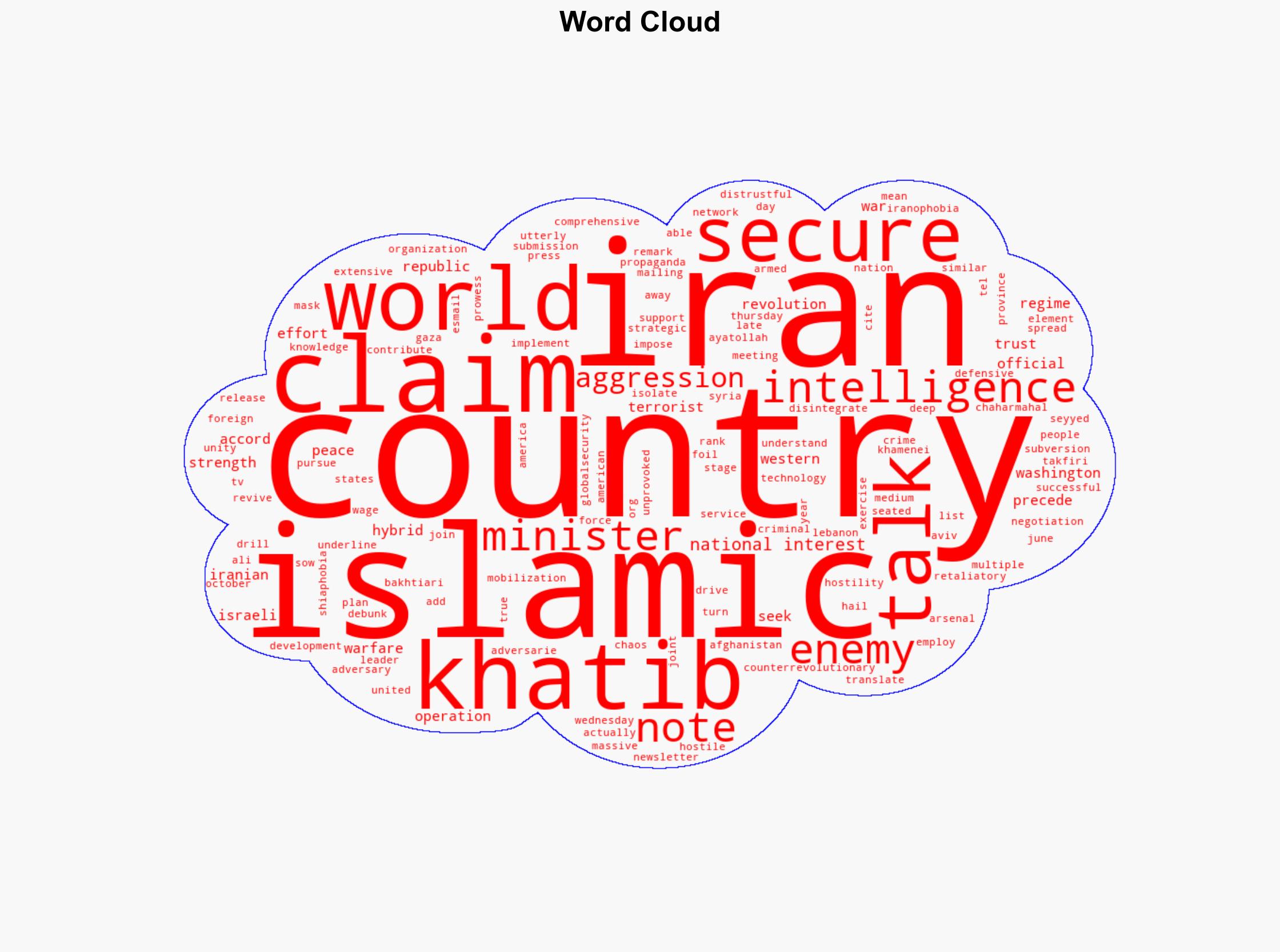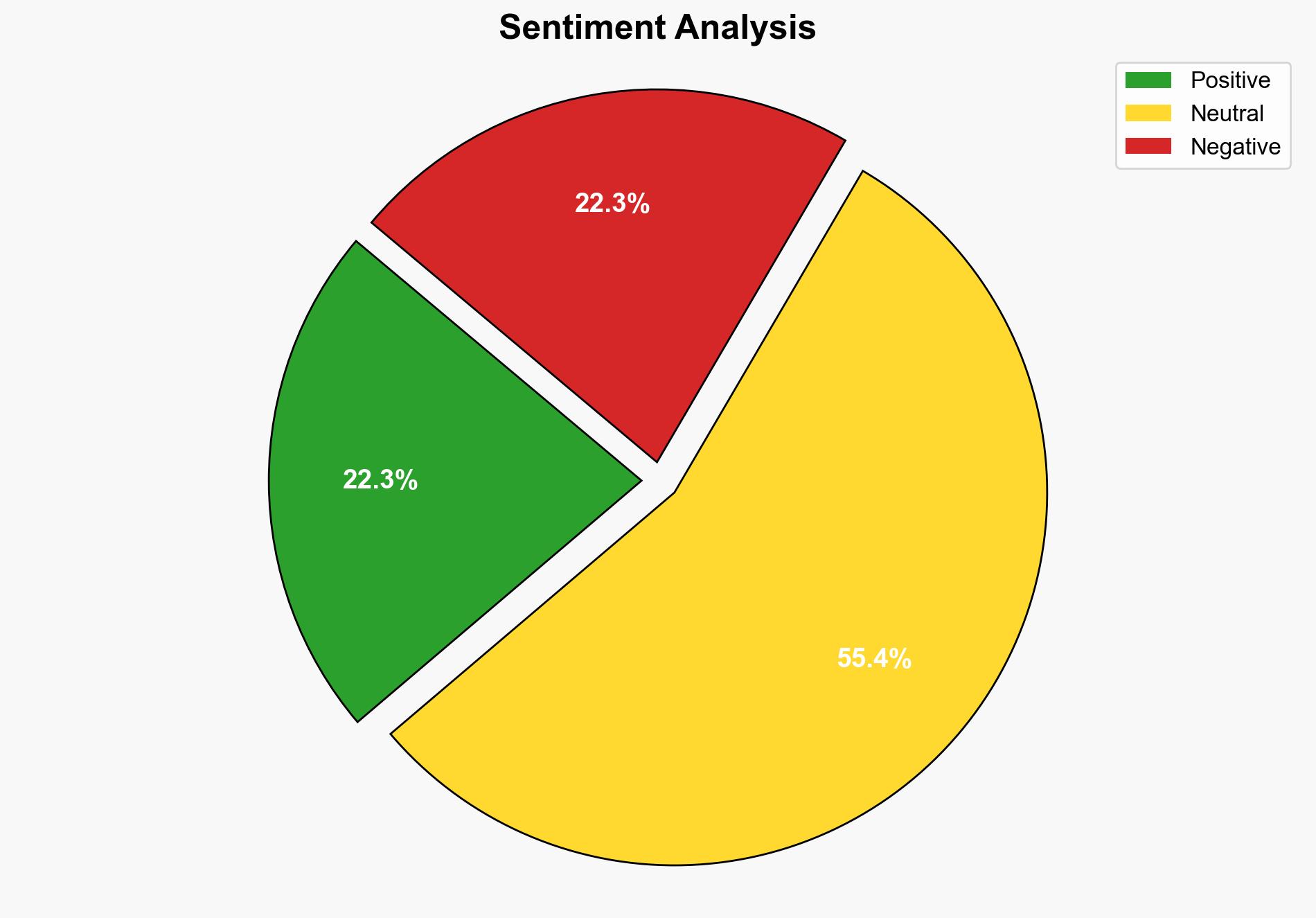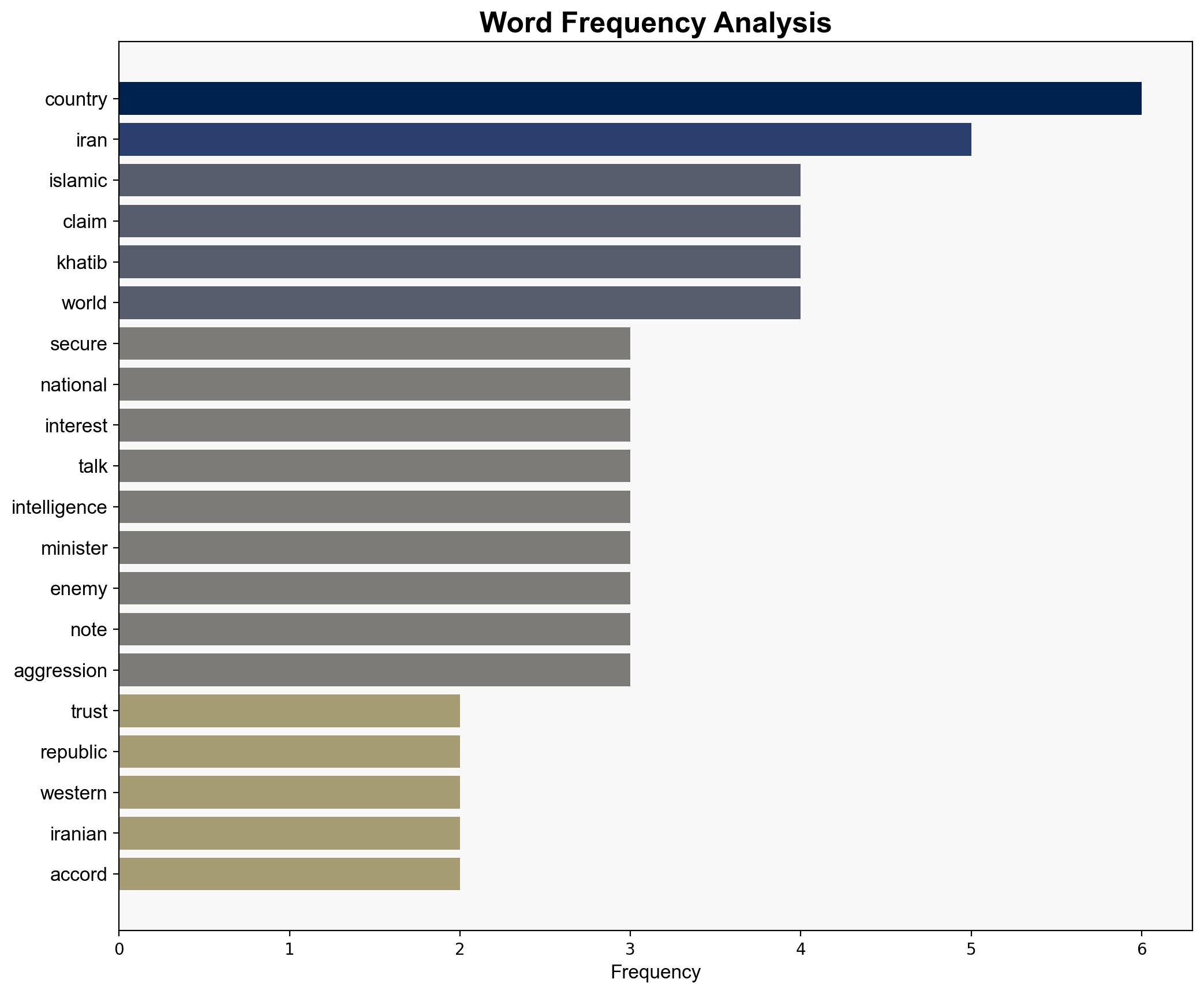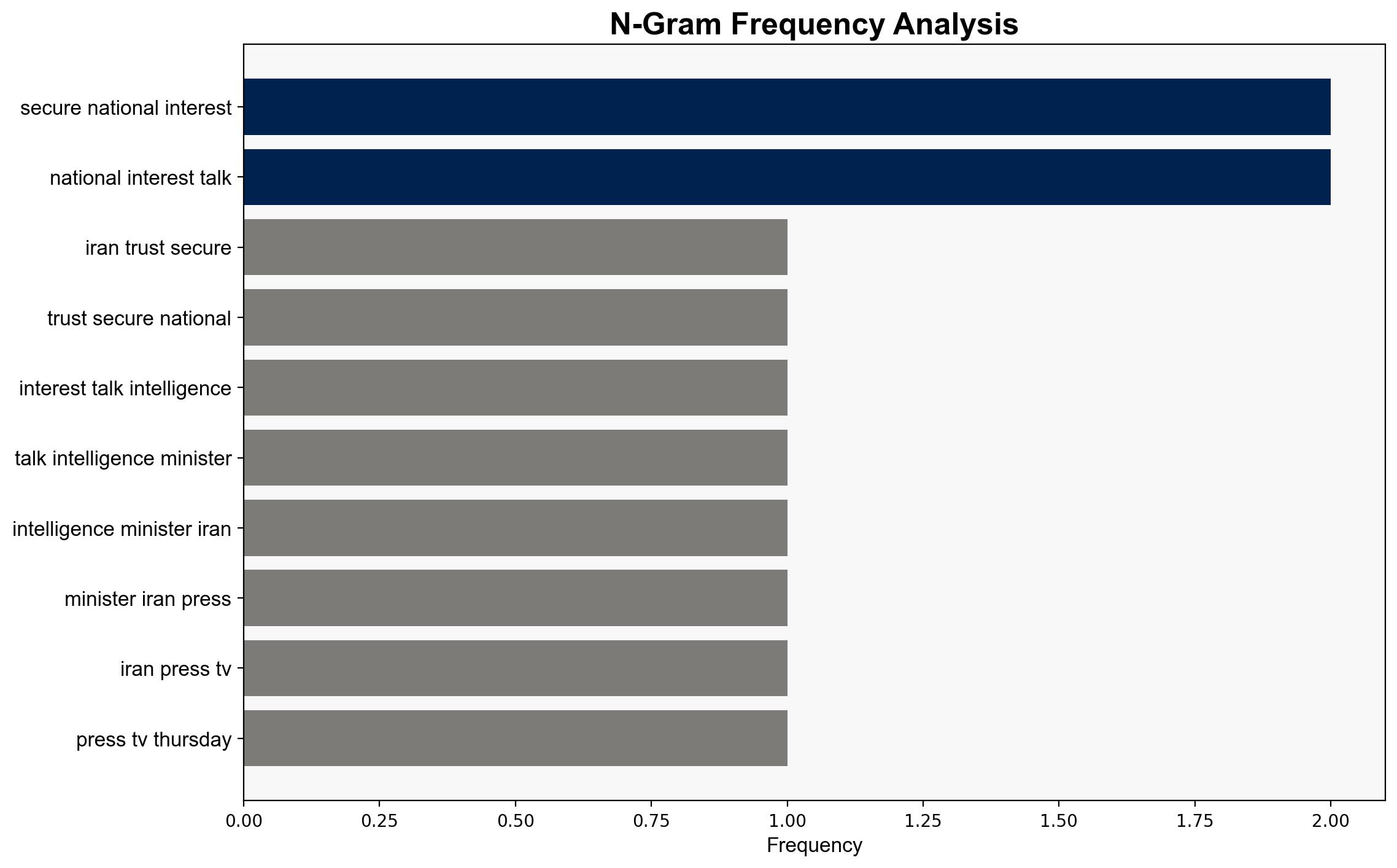Iran has no trust in securing national interests through talks with US Intelligence minister – Globalsecurity.org
Published on: 2025-10-24
Intelligence Report: Iran has no trust in securing national interests through talks with US Intelligence minister – Globalsecurity.org
1. BLUF (Bottom Line Up Front)
Iran’s distrust in negotiations with the US is deeply rooted in historical grievances and current geopolitical tensions. The most supported hypothesis suggests that Iran perceives US diplomatic overtures as a facade for subversion and destabilization efforts. Confidence level: Moderate. Recommended action: Enhance diplomatic engagement through multilateral channels to rebuild trust and address security concerns.
2. Competing Hypotheses
1. **Hypothesis A**: Iran’s public distrust in US negotiations is primarily a strategic posture aimed at consolidating domestic support and deterring foreign interference. This stance allows Iran to maintain a hardline image while potentially engaging in backchannel diplomacy.
2. **Hypothesis B**: Iran genuinely believes that US negotiations are a cover for hostile actions, influenced by past experiences and ongoing regional conflicts. This belief is reinforced by perceived US-Israeli collaboration against Iranian interests.
Using ACH 2.0, Hypothesis B is better supported due to consistent messaging from Iranian officials and historical context of US-Iran relations.
3. Key Assumptions and Red Flags
– **Assumptions**: Hypothesis A assumes Iran’s leadership is unified in its approach to the US, which may not account for internal political dynamics. Hypothesis B assumes that all Iranian actions are driven by genuine security concerns, potentially overlooking opportunistic motivations.
– **Red Flags**: The absence of direct evidence of US subversion efforts could indicate cognitive bias or propaganda. The reliance on historical grievances may obscure current diplomatic opportunities.
4. Implications and Strategic Risks
– **Geopolitical**: Continued distrust could escalate regional tensions, particularly with US allies like Israel.
– **Cybersecurity**: Potential for increased cyber operations as a form of asymmetric warfare.
– **Economic**: Sanctions and diplomatic isolation may persist, affecting Iran’s economy and regional trade.
– **Psychological**: Domestic narratives of foreign threat could bolster hardline factions within Iran, reducing prospects for reform.
5. Recommendations and Outlook
- Engage Iran through multilateral forums to address security concerns and build confidence.
- Monitor regional military activities to prevent escalation.
- Scenario Projections:
- Best: Successful multilateral negotiations lead to reduced tensions.
- Worst: Misunderstandings lead to military confrontation.
- Most Likely: Continued diplomatic stalemate with sporadic backchannel communications.
6. Key Individuals and Entities
– Esmail Khatib
– Ayatollah Seyyed Ali Khamenei
7. Thematic Tags
national security threats, cybersecurity, counter-terrorism, regional focus





